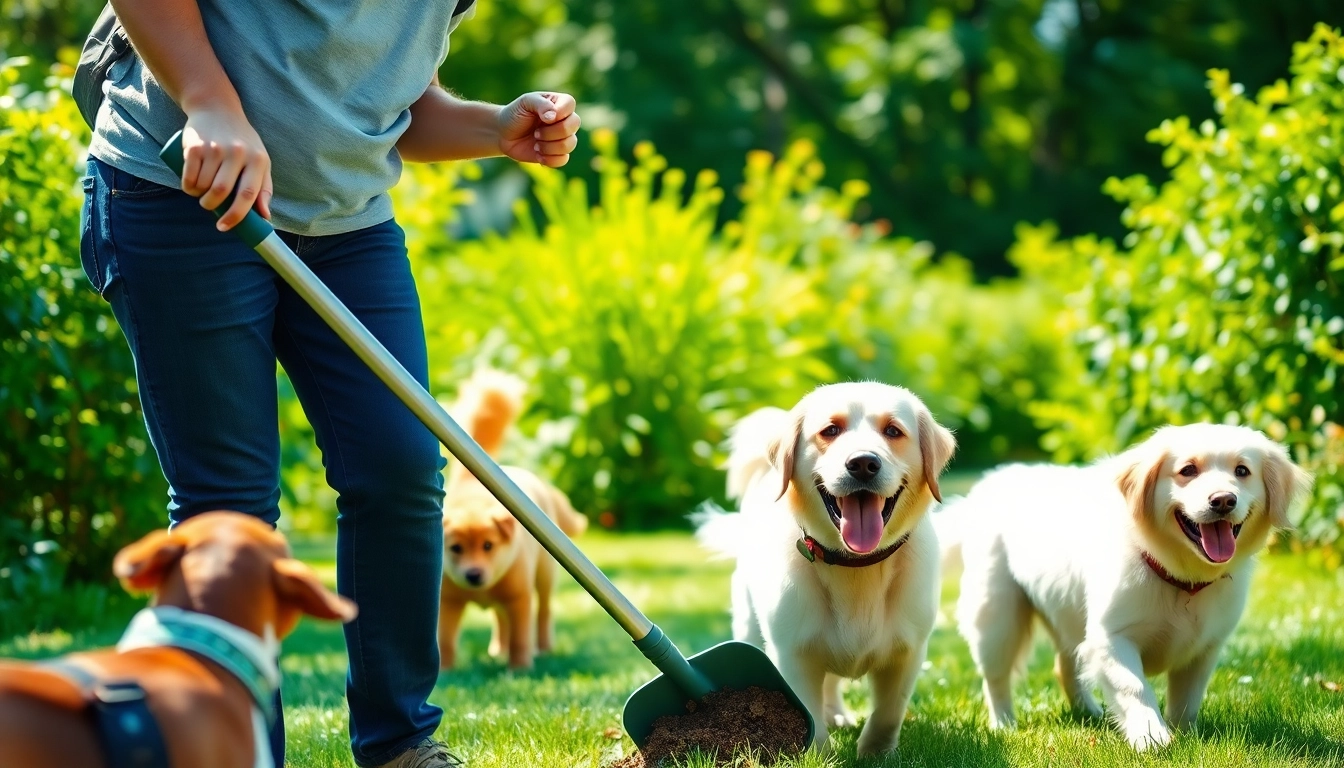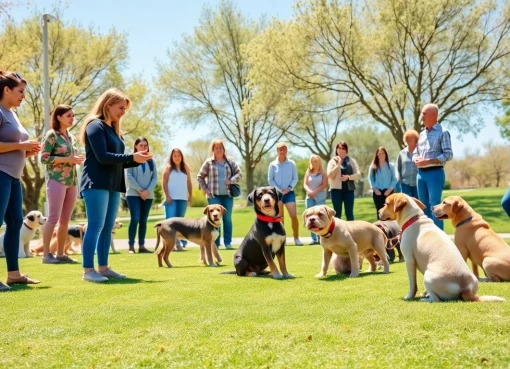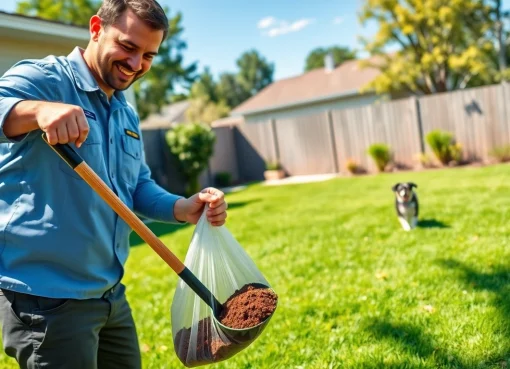Efficient Weekly Dog Poop Scooping: Keep Your Yard Clean and Fresh

The Importance of Weekly Dog Poop Scooping
Maintaining a clean yard is not just a matter of aesthetics; it plays a crucial role in ensuring the health and well-being of both pets and their human companions. One essential aspect of yard maintenance that often gets overlooked is the regular removal of pet waste. Engaging in weekly dog poop scooping provides several benefits that extend beyond mere convenience. This article will delve into various aspects of pooper scooping, highlighting its significance, how to choose the right service provider, and overcoming common challenges associated with pet waste management.
Why Regular Cleanup Matters
Regular cleanup of dog waste is crucial for various reasons. Firstly, it keeps your yard looking neat and tidy. Untidy yards can lead to complaints from neighbors and negatively affect property value. Secondly, homeowners who do not regularly clean up after their dogs may find themselves facing local fines or penalties.
Moreover, poop can harbor parasites and pathogens that pose a risk to both animals and humans. Regular removal minimizes these dangers, providing a safer environment for play and relaxation. Lastly, regular scooping also enhances the overall enjoyment of your outdoor space, ensuring that it remains a place of comfort and leisure.
Health Benefits for Pets and Humans
Weekly dog poop scooping greatly reduces health risks for both pets and humans. Dog feces can contain several harmful organisms such as parasites, bacteria, and viruses that can lead to various health problems. For instance, parasites like Giardia and roundworms can easily spread through contaminated poop, affecting not only pets but also humans who may come into contact with these pathogens.
Ensuring that your yard is cleaned regularly contributes to lower risks of disease transmission. Furthermore, maintaining a waste-free environment helps prevent dogs from scavenging for feces, a behavior that can lead to a range of health issues, including gastrointestinal problems.
Environmental Impact of Dog Waste
Dog waste is more than just an inconvenient nuisance; it is also an environmental pollutant. When left unscooped, feces can contaminate local waters and contribute to nutrient pollution. Rainwater can wash the waste into storm drains, leading it to rivers, lakes, and oceans, which can negatively affect aquatic life.
Moreover, as the waste decomposes, it can produce methane, a greenhouse gas that contributes to climate change. By engaging in regular pooper scooping, pet owners not only protect their immediate environment but also contribute to broader environmental sustainability efforts.
How to Choose a Dog Poop Scooping Service
Choosing the right dog poop scooping service is essential for ensuring your yard remains clean. Here are some crucial factors to consider when evaluating potential service providers.
What to Look For in a Service Provider
When selecting a pooper scooper service, consider the following criteria:
- Experience: Look for companies with a proven track record in the industry. Experience often correlates with reliability and quality of service.
- Reputation: Check online reviews and testimonials on platforms like Google and Yelp. A company with a positive reputation is more likely to provide satisfactory service.
- Services Offered: Ensure that the provider offers the specific services you need, whether it’s weekly, bi-weekly, or one-time cleanings.
- Insurance: Verify that the company has liability insurance to protect you from any potential damages during service.
Evaluating Service Plans and Pricing
Pricing for dog poop scooping services can vary widely based on location, service frequency, and yard size. Before committing, it’s important to evaluate different service plans and understand what they include. Some providers offer a flat weekly fee, while others may have variable pricing based on yard size.
It’s advantageous to get quotes from multiple companies to compare prices and services. Look for any hidden fees that may spring up during transactions, such as charges for excessive waste or additional dogs.
Customer Reviews and Testimonials
One of the best ways to gauge the credibility of a dog poop scooping service is through customer reviews and testimonials. Look for third-party reviews that provide insights into the company’s reliability, professionalism, and level of service. Engaging in social media platforms can also provide a sense of community feedback regarding local service providers, allowing you to make a well-informed choice.
Preparing Your Yard for Weekly Dog Poop Scooping
Preparing your yard for a dog poop scooping service can help streamline the process and ensure effective waste removal. Here are some foundational steps to take.
Creating an Accessible Scooping Area
For scooping to be efficient, ensure that your yard is accessible. You may want to create designated pathways for your service provider to navigate easily. Clear any debris or obstacles that may hinder the scooping process. If your yard is fenced, make sure that gates are unlocked during the scheduled service time.
Communicating with Your Service Provider
Establishing open communication with your chosen service provider is vital. Alert them to any specific areas of your yard that may require extra care, such as locations where your dogs prefer to do their business. By providing clear instructions and expectations, you can ensure that your service provider delivers optimal results.
Post-Cleanup Maintenance Tips
After each scooping session, engage in routine yard maintenance to keep your area clean. This includes periodic raking, watering down clean areas, and removing any residual waste. Regular inspections can also help detect issues before they escalate, like pest infestations or mud buildup.
Common Challenges in Dog Poop Scooping
Despite its importance, dog poop scooping comes with its own set of challenges. Here’s how to face these issues effectively.
Handling Multiple Dogs and Large Yards
Managing multiple dogs or a large yard adds another layer of complexity to poop scooping. You may want to schedule more frequent cleanings in such scenarios or discuss customized service plans with your provider to accommodate the added waste.
If you’re a pet owner with multiple dogs, consider implementing a waste management schedule. By keeping a log of each dog’s preferred areas and cleaning routine, you can streamline the process.
Addressing Seasonal Considerations
Seasonal changes can greatly affect the frequency and type of cleanup needed. For example, during winter, snow can cover feces, making it hard to collect. Conversely, heavy rains in spring can wash waste into drainage systems.
Consider adjusting your cleaning schedule based on these seasonal factors, ensuring that your yard remains safe and hygienic regardless of the weather.
Dealing with Neighborhood Etiquette
It’s essential to be aware of neighborhood etiquette when engaging in dog waste management. Ensure that your yard does not impact your neighbors. When walking dogs in common areas, always clean up after them promptly. Building a good relationship with your neighbors by discussing your cleaning plans and intentions can go a long way in fostering community goodwill.
Maximizing the Benefits of Weekly Dog Poop Scooping
To get the most out of your dog poop scooping service, consider the following strategies.
Establishing Routine for Dogs
Developing a routine for your dogs can help manage waste more effectively. Regular feeding and bathroom schedules can lead to predictable bathroom habits, making it easier to anticipate when and where your pets will relieve themselves.
Encouraging your pets to use designated areas, such as specific corners of your yard, can also streamline the scooping process.
Integrating Cleanup with Other Pet Care Services
Consider integrating your poop scooping service with other pet care offerings like dog walking, grooming, and pet sitting. Bundling services can often lead to cost savings and more convenient scheduling.
Moreover, a comprehensive pet care plan ensures that your dog’s overall health and wellness are taken care of, not just waste management.
Measuring Your Yard’s Cleanliness and Health
Regularly assessing the cleanliness of your yard can help gauge the effectiveness of your pooper scooping services. You can evaluate aspects like odor control, the appearance of the lawn, and the presence of pests to determine if your service is up to par.
Implementing yard health checks can aid in identifying problem areas that require attention. Tracking these metrics over time will give you insights into your pet’s health, as well, as it reflects the overall state of your yard and property’s environment.



Leave a Comment